Even though our modern cars are more reliable and efficient, they have drawbacks. For example, multiple aspects of a vehicle can be affected at once when a computer fails.
The computer system in your car controls every aspect of the drivetrain. The powertrain control module (PCM) is the primary computer controlling these systems.
In addition, a transmission control module and engine control module are controlled by this module.
The purpose of this article is to discuss the most common PCM failure symptoms and what they mean for your car. If your PCM is bad, you will usually see a check engine light on your dashboard and poor engine performance.
Irregular shifting is a serious symptom of a malfunctioning PCM. A faulty sensor is usually responsible for this.
Transmission problems may also occur, such as shifting issues. The fuel economy is also likely to be poor and emissions to increase.
In spite of the fact that PCMs rarely break, they do occasionally do so. So, make sure other causes have been ruled out before jumping straight to the PCM.
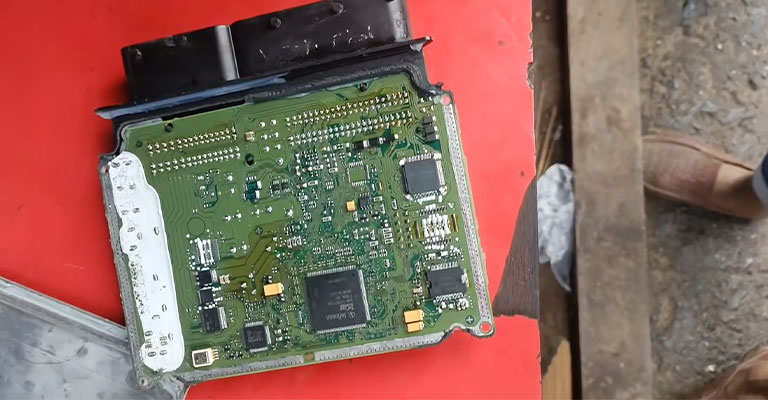
Detailed List of the Common Symptoms of a Bad PCM
No matter what kind of car you own, the PCM relay will be the same on Hondas, Fords, and Chevrolets. It is the vehicle’s brain, and it controls everything inside it. So, it’s a big deal when a car computer goes bad.
A problem with this system prevents it from communicating with other systems inside the vehicle. So, in addition to your timing, you may have to replace other vital systems as well.
1. An Error Code Related To PCM Is Being Displayed
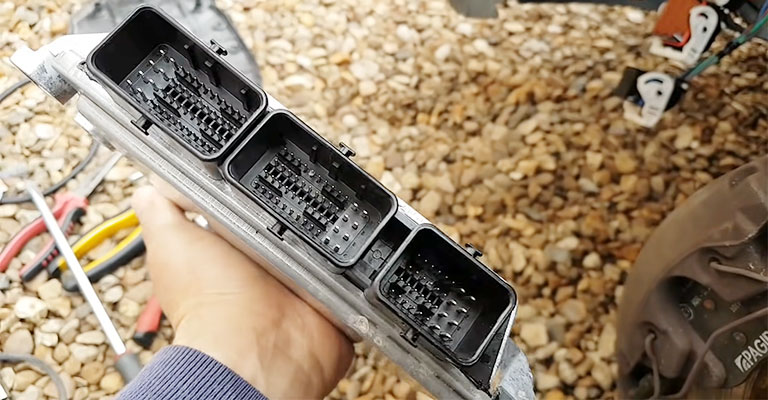
Any code reader connected to your PCM will display the error code when there is a problem with the PCM. You are in trouble for the first time! Congratulations! Fortunately, you discovered the issue before it worsened.
2. Shifting That Is Erratic Or Random
A PCM failure can cause irregular shifting, which is a severe symptom. It usually occurs when a sensor fails or if water damages a circuit in your car’s PCM or TCM.
Immediately take your automatic transmission vehicle to a mechanic if it’s not shifting normally.
A defective PCM or TCM can cause a car to become stuck in gear, which can be a serious safety concern. The transmission can also be damaged, resulting in a costly repair bill.
3. Stutters Or Stalls In Your Engine
When an engine stutters or stalls, there is either a serious mechanical problem or a malfunctioning computer.
As you can see, PCM or ECM failures are actually one of the less expensive and easier-to-fix scenarios if you’re experiencing these symptoms.
There are several reasons why this might occur, but typically, it’s an issue with your engine timing. ECMs directly control that function, but PCMs can also be responsible since they require feedback from PCMs for timing adjustments.
4. Gas Mileage Suddenly Drops
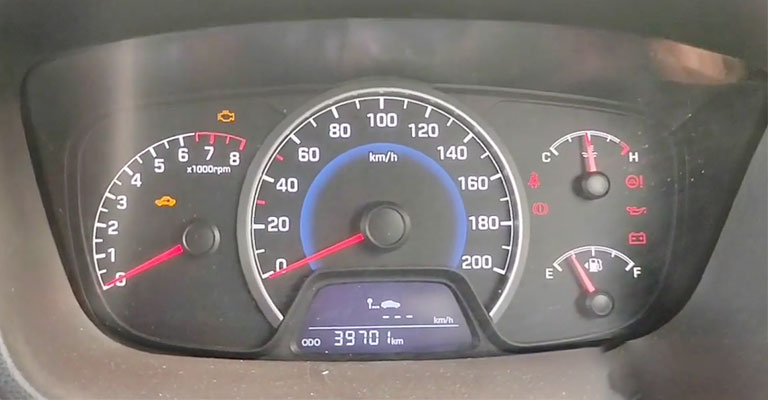
Among its functions, your PCM controls your fuel-to-air ratio and decides when to shift gears with the help of the ECM and TCM. You will get poor gas mileage if either of these functions isn’t working correctly.
Other factors can also cause poor gas mileage. Ensure that your tires are properly inflated, and your filters have been changed according to the schedule. It’s possible your car’s computer system is not up to date if these things are up to date.
5. Emissions Test Failed
Your vehicle’s PCM and ECM control fuel-to-air ratios. Over rich mixtures (too much fuel relative to air) results in a lower combustion rate and result in more carbon monoxide and particles being released into the atmosphere.
Emission tests in your state may be invalidated if you do this. So, the first thing you should do if your car fails is to check the PCM and ECM. Getting a new catalytic converter is much more expensive than replacing a failed PCM or PCM.
6. Starts Rough Or Doesn’t Start At All
Another PCM failure system may be reflected by your car not starting or taking several attempts. You may have a variety of PCM errors, but you may also have an issue with your engine control module.
There are several possible causes, including:
- The wiring harness has a short
- Timing issues with engines
- Improper fuel-air balance
This is a serious issue since your car could fail to start in an empty parking lot, on a country road, or anywhere else.
7. Check the Engine Light
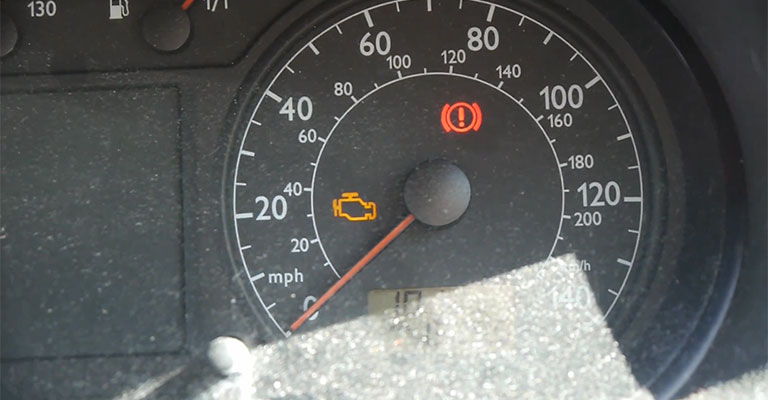
You can use the Check Engine light to diagnose all types of problems with your car. You don’t need to panic if it comes on, as it can be anything that doesn’t match any of your other car’s warning lights.
As a result, having your engine codes checked to ensure there isn’t anything serious wrong is a good idea.
Also, many states won’t allow cars with a lit Check Engine light to pass inspections, so you’ll have to get it checked sooner or later. Rather than waiting until there is an emergency, why not take care of it now?
Functions Of A PCM On Car
You have a PCM in your engine that controls the power delivery system. Various features are controlled by it, including ignition timing, fuel delivery, emissions, turbo boost pressure, idle speed, throttle control, and many others.
Each actuator is programmed to respond to specific commands from the PCM – for example, hitting the throttle – and the PCM knows the acceptable responses.
The PCM controls transmission and engine control functions, while you might be familiar with transmission control modules (TCM) and engine control modules (ECMs).
PCMs either house both components in one instrument cluster and they control both functions from a single computer.
Various sensors communicate with the PCM to control these functions. The actual results are measured through a sensor after control is sent to the actuator.
Where Is The PCM Located?
You will see some wires that are coming out of a PCM, which is a metal box. Powertrain control modules are located in different places on different vehicles. PCMs are usually installed near the fuse box in the engine bay.
A few covers can also be removed from some models to reveal the sticker on the front windshield. In addition, under some plastic covers in the passenger compartment, the PCM may be located if it isn’t located in the engine bay.
What Is The Cost To Fix A Bad PCM?
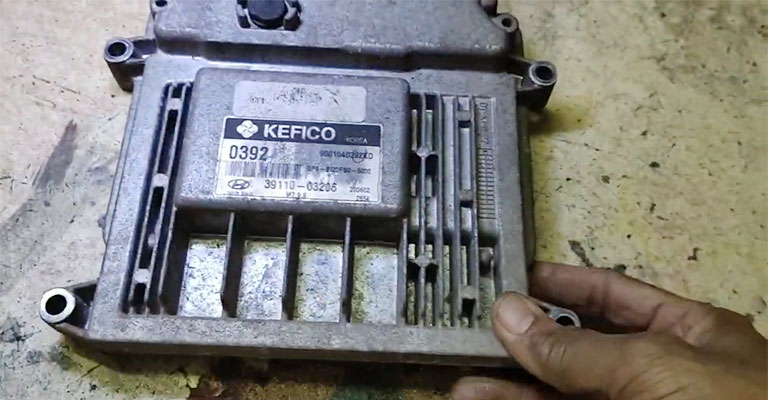
You would expect PCM parts to be expensive since it is such a critical system. Yes, you would be right. However, depending on the complexity of the powertrain control module, prices can vary widely between vehicles.
In contrast to someone who owns a 15-year-old Ford Focus, an Audi A8 owner will pay much more for a new PCM.
As a result, factor in an hourly rate of around $120 for labor charges, which are higher than those typical mechanic charges. However, the installation process is relatively straightforward, so labor shouldn’t be too concerned.
A new module will cost between $500 and $1,500, and labor will cost at least $120. In this case, visiting a dealer is not essential, but if you want to go there, expect to pay a lot more.
On the other hand, it is possible to save a lot on the replacement cost by choosing a reputable auto-electrician instead.
If you buy a used powertrain control module online or from a junkyard, you might be able to get it for a few hundred dollars, but keep in mind that you will have to reprogram it. Therefore, you should also consider the additional costs.
If your car is still running, you can drive it to the mechanic instead of having it towed. Ensure it’s resolved as soon as possible, though, before some of the critical systems are damaged.
What Is The Difference Between An ECM And A PCM?
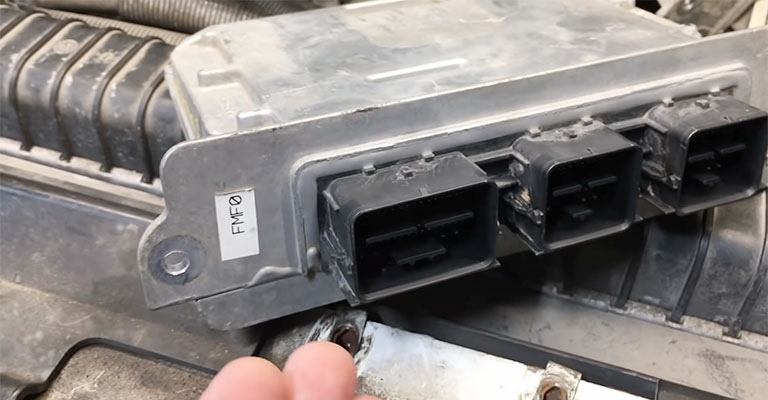
Engine control modules, or ECMs, are computers that control engines. PCMs, or powertrain control modules, are computers that optimize fuel economy and power by controlling transmissions and engines.
A PCM regulates the transmission and the engine, while the ECM focuses on the engine.
How Can I Test My PCM?
Without extensive experience with these things, testing a PCM is very difficult. However, in case you don’t know how to test the PCM, you can use a multimeter to test whether the PCM receives voltage and ground.
How Long Does It Take To Fix A PCM?
Most people won’t be able to fix a PCM on their own. Your comfort level with computers and the issue will determine whether you can resolve it.
There is a possibility that it will take less than an hour if it is a simple software problem. However, PCMs may need to be replaced if there is a hardware issue. If there is a hardware issue, it may take several hours.
What Is The Reprogramming Cost Of PCM?
PCM replacement is much more expensive than reprogramming. It costs between $50 and $160 to reprogram a PCM. Using the manufacturer’s software, the powertrain control module is connected to your car and updated with the latest version.
Approximately one hour is required for the process. Ensure the system is functioning properly and there are no trouble codes after completion.
Can A Car Run Without A PCM?
PCMs are essential for cars to run. The PCM controls fuel delivery, ignition timing, and emissions controls (Powertrain Control Module). You won’t be able to start your car without a PCM.
The Bottom Line
Don’t panic if you experience one of these PCM failure symptoms. Possibly, your PCM is not the cause of the problem. For example, the problem could be caused by a faulty sensor or a shorted wire.
A computer problem can cause serious problems with nearly every aspect of your car or truck since everything else depends on the computer.
PCM symptoms can give you an early warning of trouble so that you can fix the module before things spiral out of control.




